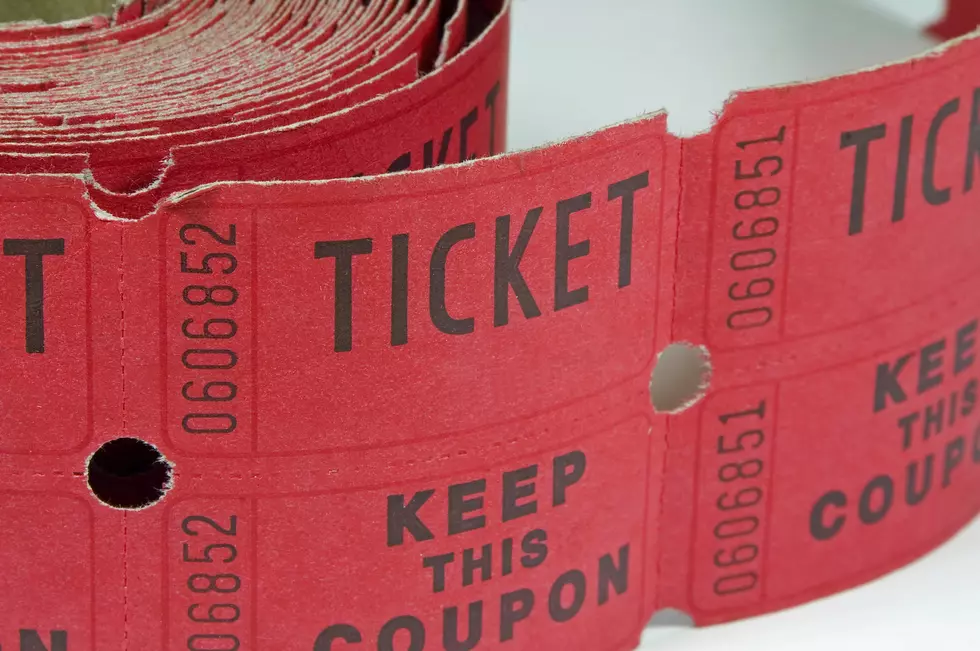
Browning rancher is ready for Grizzly Bears to be de-listed
Joe Kipp is a rancher in the Browning area and he also sits in the MT Livestock Loss Board. Grizzly Bears are a constant topic of conversation in Montana with ranchers. The topic is now becoming more common with parents and grandparents who fear for the safety of there kids. I appreciate Joe taking the time for the interview. The audio version of the interview can be found at the bottom of the story.
Randy: So I guess if you don't mind, let's talk about the ranching aspect of it. We'll get into the Livestock loss board in a second. But as far as ranching, what is the impact grizzly bears, wolves and those types of things have had on your operation?
Joe Kipp: Well, personally I can tell you that for the last 25 years they've increased, increasing in numbers and depredations. We try to be as smart as we can with the ranching business, trying to keep cattle away from riparian areas where there's cover, where there's going to be more large predators. We've built a lot of electric fence for when the cows are having their little ones so that they can be protected. Then we've had Karelian Bear Dogs on the ranch for 30 years. They've helped a bunch. We go through about $250 worth of dog food a month but we have a pack of six of them now and they're a tremendous asset as far as controlling depredations. I guess the biggest factor with us is you never really want to let your grandkids or kids go out and play on their own in the ranch. And I live right in the River Valley, which is Cut Bank River Valley at the wildlife corridor from the Rocky Mountains to the Sweet Grass Hills. So it's always that idea that, hey, you've got to be careful, we got to be smart, stay out of dangerous areas, go in groups, bring dogs with us and the Karelian Bear Dogs, I can't say enough good things about them. You walk out the door and they're on your tail and they're watching where you're going to go and then they go in front of you and try to clear the trail for you. So it's been a big impact. We're trying to roll with it and adapt to it as much as we can. We're not without predation losses though, even as much as we do here personally.
Randy: What is your primary predation from? Is it grizzly bears, wolves, mountain lions, Coyotes?
Joe Kipp: primarily grizzly bears here we have a little bit of mountain lion loss and we also have some coyote loss in early spring.
Randy: Wolves is not something you've had to deal with then.
Joe Kipp:Not right here on summer pasture we do and that's kind of a bugger I'm very lucky with our summer pasture is that we're in the foothill so we're kind of in the rain belt up there but we're not so close to the timber where the wolves are except we've learned that when the wolf puffs are about in September when the wolf puffs must be big enough. Then they usually migrate down to our pastures and I think they teach their young to kill on livestock on our cattle. We do have a little bit of wolf but it's mostly just on the summer pasture.
Randy: You touched on something there, not letting the grandkids out to run loose. Has there been documented children that have been lost to grizzly bears?
Joe Kipp: No, there hasn't been. Not documented. Really all the further I want to go with that and I'll go right back to the Chocolate Legs story up in Glacier. So back in the 80s, she was relocated from the reservation, Glacier National Park, because she was killing cattle. They even wrote some children's books about her. What a wonderful program relocation was. And then a year or two later, there were some young employees from the park, a young employee from the Glacier Park Incorporated. They went hiking up behind Tow Medicine Mountain and disappeared. They never did find anything about them. But the next year, a different hiker on the very same Memorial Day weekend went out and he was the one that was partially proven to be partially consumed by Chocolate Legs and her cubs. So I guess you could say that there's very high probability that Chocolate Lakes a year earlier, at the very same time of the year, probably had something to do with that missing person then.
Randy: So I'm going to ask the million dollar question. Livestock is one thing, and losing livestock is detrimental to the ranch or the agriculturalist, but we're losing kids. Why is our government not doing more to help us?
Joe Kipp: I don't know. I'm not a politician, so I can't explain that. Why not now? Are we losing them to bears? That it's yet to be proven. The problem with large predators is they're scavengers too, because they both scavenge and predate. So in the livestock business, we know we've lost a calf. Did it die of pneumonia or birthing effects and the bear just come on and find a dead calf and it's gone? Or can we realistically say with 100% conviction that that was a predation? And that's the issue we have in the livestock business because to get any compensation from the livestock loss board, it has to be probable or confirmed. And the investigating agency that has to perform the investigation is USDA, a wildlife service. And they have a code book that is very strict. So basically what I'm trying to tell you, sir, is that a lot of ranchers will end up with missing cattle. The agencies have not been able to determine that there was a true death caused by predation. And so the rancher is marked down as possible, and you have to get any compensation for it. You basically have to find a piece of dead body to prove that it was a mortality. And then you have to have tracts or blood or something leading them to believe that it was preyed upon, moles alive. And so you can't just find a dead calf or parts of a dead calf. There actually has to be wounds that show the heart was beating while the animal was biting it to prove that it was a probable or confirmed. And that's a real issue here.
Randy: And it's a good point. I was born and raised, lived on ranch my whole life, and cattle die, calves die. It happens. I understand both sides of that. In your estimation, do we have a grizzly problem? Is it time to delist the grizzly?
Joe Kipp: Absolutely. I think we match all population quotas. We far exceeded what the initial population plan was to be before it was delisted. We're three times over that. So, yeah, it is time for the federal government to back off and let the tribe or the state manage their wildlife as they see fit without all the federal overreach that we have. And I'll give you an example of that. A couple of years ago, I'm out cutting hay and some US fiction. Wildlife special agent shows up on my ranch wanting to know if I knew anything about who killed the grizzly bear down river about five or 6 miles. And I was like, no, I don't know anyone that did that. And if I did, I don't think I tell you. I have no idea why anybody would shoot that. Tribal members normally don't shoot bears unless they are a threat to their livestock or their children. And I don't know the circumstances. If I didn't know who did it, I wouldn't tell you anyway. So get the hell out of here and let me finish my work.
Randy: Well, I think that's a rancher's mentality straight across the board. I'm in complete agreement with you, so I appreciate this information.
Joe Kipp: I do want to explain a little bit. So basically, when these large animals come through and they're hungry in the spring or fall, unless the animal can be found quickly before. So sometimes after predation, all you find is a greasy spot of grass. It's hard to find any evidence that they did consume what they consumed. The rancher or producer will walk out and say, you see all this grease and beat down grass? Yeah, they ate something right here. But unless we have proof that it was a little piece of skull cap or part of a hoof that has some, that when it's kicked out, will show blood congeal to prove that the heart was beating when he was biting it, it just marked down as possible or maybe not even investigated. The onus of that falls on the producer to go into where a bear was recently at, walk in there with his family and dogs and try to find a piece of carcass to prove that there was a mortality. And that's where the government needs to come in and provide the agencies we need. So we're not putting ourselves or our kids and grandkids in harm's way, trying to prove that this was a bear kill. And I'll give you A very personal example of that. The last spring, on Easter Sunday, we got about six inches of snow here. We saw where the family of bears with two year old cubs had gone up. And we have electric fence around the mother cows, but they were able to slip through it, get up into the cow herd. They walked right to where a big cow had her calf. She's sitting there with afterbirth hanging out of her, she's got a full bag, and she's bellowing for her calf. And their trail goes right to her and then goes back to the brush. We had to go in. My 13 year old grandson and I had to follow that trail down through the brush. And we were both armed to protect ourselves with our dogs. We were only able to find a two and a half inch piece of skull cap. That shows crash parks with blood stains on them. Everything else had been consumed in less than 12 hours. But why did I have to take my 13 year old grandson into the brush? Yeah, he was packing A twelve gauge with slugs. But why should I have to put him in danger. With my own life doing that if they're protected? When the federal people out here, I can say the tracks lead right down that brush. You guys want them protected. You guys go down there, you investigate it without them just peeking over the ridge and saying, I don't see nothing. That's what I'm upset about with the government.
Randy: I'm with you 100%. Anything else you want to add?
Joe Kipp: You probably know the livestock loss board is going to be very stretched to make all the claims this year. You heard that? Yeah. And I've been watching the files. I mean, they're full. Yeah, they're full. We're slightly behind last year at the same time, but I'm expecting it to be a lot more. So we'll just have to see how it shakes out for the year. But we do need to try to figure out how do we help the producers to sustain these losses? We recently got state law passed that we were allowed to implement a multiplier. And what this will do, Randy, is let's say Joe confirms four missing calves in the spring, and he has one confirmed bear kill. So with the multiplier, it would allow maybe up to two and a half of those other calves that were possible bear kills to be covered. Just because all the evidence Points in that direction. And that would help. What I'm trying to explain is that with the producer, the way the laws are written is that maybe only one out of eight of his losses, there's going to be enough evidence to call that confirmed or probable? Yeah, the possible with a multiplier. State legislation has approved that we can implement a multiplier, but there's no funding for it. And that, again, goes back to the federal government. They want these animals to be protected. Well, they need to pay state agencies that are covering the losses of these animals. So the government needs to kick in. And I don't care where they get the money from, whether the Department of the Interior, who's responsible for the grizzly bears, or they want to shift that money over to the USDA to help with the investigations and then to the state of Montana, that's fine, but they need to pony up and put some money down for us. And then the Livestock Loss Board is actually, in good faith, cover a lot more of the depredations that are occurring, but just don't prove it. So I'd like that to be included too.
More From K99









